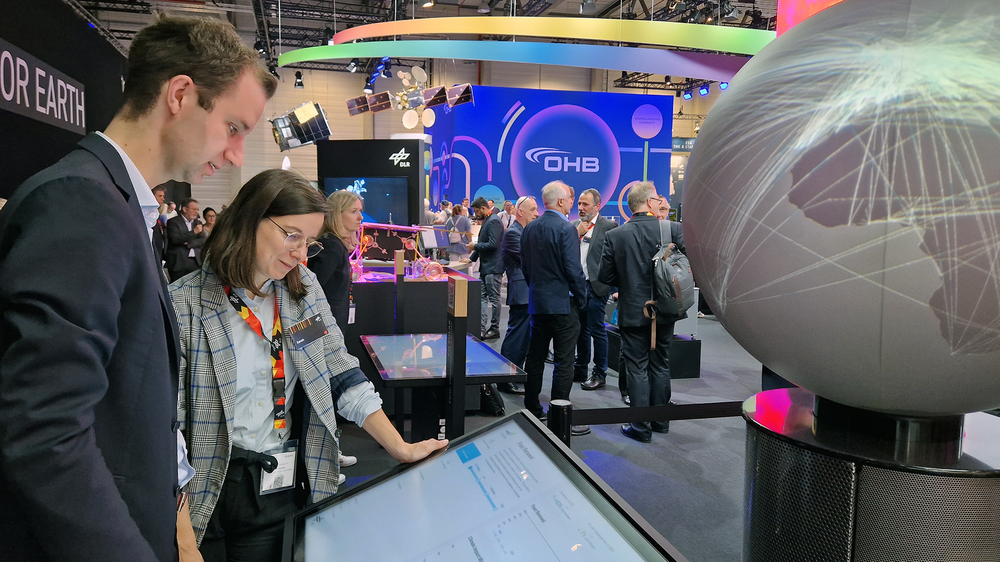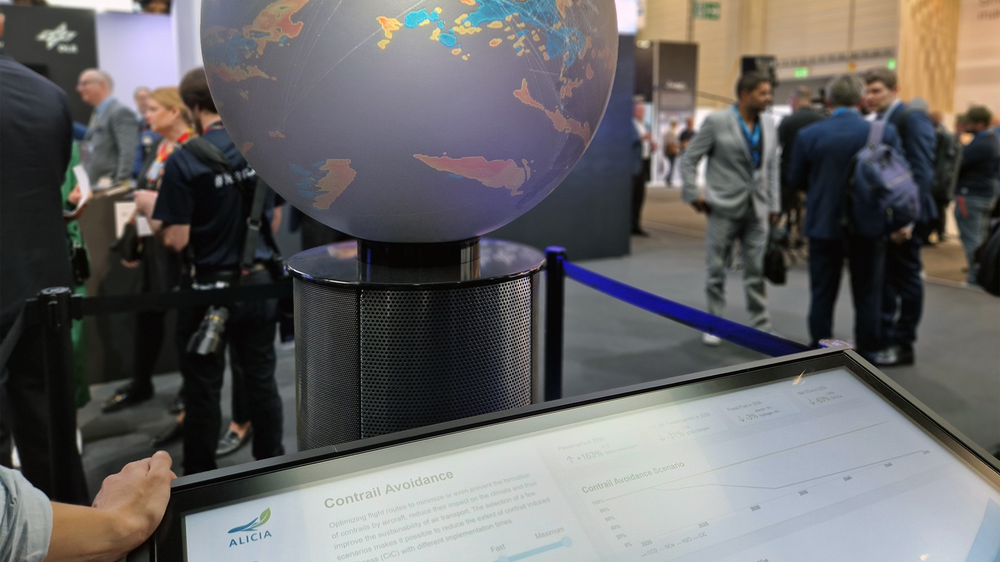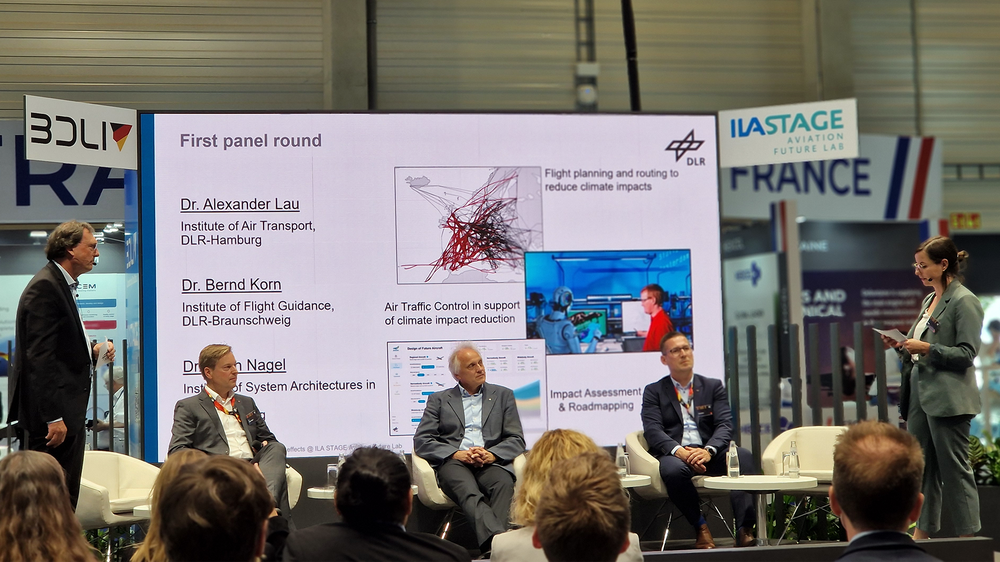DLR Institute of Air Transport at ILA 2024



- Highlights: Interactive presentation of the ALICIA Dashboard and a panel discussion on non-CO2 effects
- Presentation of the institute's contributions to the projects MEASURE, Clean Sky 2, and QCMobility
Climate Impact of Aviation: Presentation of the ALICIA Dashboard
At ILA 2024, the DLR Institute of System Architectures in Aeronautics, together with the Institute of Air Transport, presented the interactive ALICIA Dashboard. This dashboard, developed within the DLR aviation research project ALICIA (Aviation Life Cycle and Impact Assessment), demonstrates the possibilities for increasing climate compatibility in air transport by 2050 using various scenarios. Visitors could explore scenarios considering assumptions about passenger demand, fleet renewal, future aircraft, fleet operations, and the fuel market.
Innovative Drone Operations: The MEASURE Project
As part of the MEASURE project, funded by the Federal Ministry for Economic Affairs and Climate Action (BMWK) under the Aviation Research Programme (LuFo), the institute presented its contribution to flight mission planning with unmanned measurement drones for in-situ measurement of volcanic ash and radioactivity. By developing and applying geostatistical methods and genetic algorithms in collaboration with the German Weather Service (DWD) and enviscope GmbH, flight routes are optimised to efficiently measure these phenomena. This method enables improved data validation and dynamic adjustment of flight missions.
Emissions and Socio-Economic Impacts: Clean Sky 2
The Clean Sky 2 "Technology Evaluator" project, presented at the joint ILA stand of the European Commission and the Clean Aviation Joint Undertaking, assesses the future environmental and socio-economic impacts of air transport. Analyses indicated, for example, that using Clean Sky 2 technologies could achieve a CO2 reduction of about 14.5% at fleet level by 2050. Additionally, forecasts on fleet development and economic effects, such as employment numbers and added value, were presented.
Quantum Computing and Air Transport? The QCMobility Project!
In collaboration with the DLR Institute of Quantum Technologies, the QCMobility project was presented. This project explores the potential of quantum computing for applications in mobility, for air transport particularly in strategic and tactical flight planning. The research aims to enhance the computability of complex algorithms and enable real-time optimisations.
Non-CO2 Effects: Panel Discussion and Research Insights
Another highlight was a panel discussion at the ILA 2024 Aviation Future Lab, where DLR experts discussed the non-CO2 effects of air transport. Moderated by Zarah Lea Zengerling from the DLR Institute of Air Transport and Prof Dr Volker Grewe from the DLR Institute of Atmospheric Physics, the discussion included insights from the Institute of Air Transport on the role of flight planning in reducing the ecological footprint of aviation. The contributions from DLR experts emphasised the importance of collaboration and knowledge exchange in addressing the environmental challenges of air transport.
